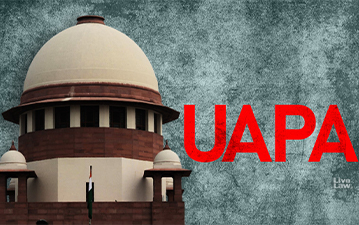
Narcotics & The Youth – My Unique Encounters
A complex legislative framework for drug and substance control, the Narcotic Drugs and Psychotropic Substances Act (NDPS) encompasses a wide range of provisions. The Indian government passed a law outlining the rules, punishments, and processes for the illicit manufacture, sale, and transportation of narcotics. The legislation establishes strict penalties for drug offenders and divides narcotics into several classes. The complex web of drug trafficking networks, global boundaries, and shifting attitudes toward substance misuse all work against its effective enforcement. Striking a balance between rehabilitation and law enforcement is an ongoing problem. Navigating the intricacies of the law, the effects on society, and the dynamic nature of the drug trade are all necessary for comprehending its complexity.
The primary objective of the 1985 NDPS Act is to combat the pervasive problem of drug misuse and trafficking in India. Although the Act has good intentions, it is riddled with severe provisions that frequently result in the arbitrary prosecution of individuals, particularly young people who may not fully grasp the consequences of their actions.
As a seasoned lawyer dedicated to upholding Justice and defending the rights of individuals, I recently had the privilege of representing a teenager whose life was unjustly entangled in a drug consumption case. I want to share my experience and shed light on the complexities surrounding drug-related cases in India, particularly in the context of the Narcotic Drugs and Psychotropic Substances (NDPS) Act. For many years, I have represented clients in NDPS cases in the High Court and the Supreme Court. But some cases seem like a landmark and major milestones in my legal career. The case I’m highlighting right now stood out to me because it involved the careers of youngsters, which is a very serious matter. When it comes to making smart and correct choices, age plays a significant role. Teens who aren't yet old enough to fully grasp the nuances of the laws that govern their activities often cross lines that they would never cross if they were older and wiser.
Basit was a teenager when he was arrested and charges of consumption and conspiracy were levelled against him. A young boy with dreams in his mind and a case on his track record that would kill all his life plans was my client. When he approached me with his case, the Chargesheet in this case was not filed. So based on the FIR, I filed a writ petition for quashing the case. With a mention of a few points regarding how he was falsely implicated in the case, I also positioned him as a victim and not a criminal. The moment the writ petition was filed, the respondent immediately filed the Chargesheet to make matters worse. That is because It is difficult to quash a case after filing of the charge sheet. But regardless of that, I continued with my plan of action and argued vehemently. I was not just focussing on winning the case but I felt majorly responsible in helping a young boy build his career and not give up his whole life to a criminal case that had become his label.
I pointed out several discrepancies from the chargesheet regarding the fact that there were charges of consumption against him, and how his blood samples were taken, but the report was not annexed to the charge sheet to corroborate the alleged charge. His urine samples were taken and those were also not annexed in the chargesheet to corroborate the allegation. Also, the fact that the FSL report of the contraband was not filed to corroborate whether the contraband was mephedrone.
As allegedly twelve-gram mephedrone was seized from his brother, I professed that it was a clear case of false implication where he was being implicated because he is related. He has been roped into the case because his brother was found with a 12-gram MD and how charges of conspiracy were not even made out because there had to be some prior meeting of minds that had to come on record which was not the case.
I also raised this submission on how the investigating agency had filed a Chargesheet after a delay of almost 20 months, exactly the moment we filed the petition. On the contrary, they were just taking things lightly and did not seem to be interested in filing the Chargesheet. Basit wanted to travel to San Francisco for further studies but this case had become an impediment for his future and career. I put forth my concern about how his career and his future could be jeopardized because of this pending case against him. So taking into consideration all of these submissions, the case got quashed. To get an NDPS Case Quashed is a very rare phenomenon in the legal world.
Aryan Khan's Drugs Cruise case that was getting a lot of spotlight was another milestone in my professional life, where I defended the accused Avin Sahu. Even in this case, Charges of conspiracy were levelled against every accused. My client was one of them. There were about 20 accused in the case. It became all the more difficult for any accused to get bail due to the nature, importance, and charges in the case. After Aryan's bail was rejected, I was arguing for my client’s bail the very next day. I could clearly see one career collapsing, one young boy being labelled and that gave me the strength to put all my efforts into figuring out the possibilities and realities of the situation. I argued that the youth will become hardened criminals if we do not view them with compassion rather than putting them behind bars in the company of hardcore criminals. I raised a question as to why Blood samples were not taken and there was nothing on record to establish the prior meeting of minds of the accused to hatch a conspiracy.
I managed to save one young boy and secured bail for him which unchained the chain of conspiracy which further diluted the serious charge of Conspiracy which ultimately helped the other accused in the Drugs Cruise case.
Irrespective of their knowledge or intent, individuals who are found in possession of narcotics are subject to strict liability under Section 37 of the NDPS Act. This provision has the potential to unintentionally ensnare individuals who are not guilty of possessing illegal substances or are oblivious of their nature. Consequently, numerous adolescents and young adults become entangled in a legal dilemma, confronted with grave repercussions for behaviours they may not entirely grasp.
As a society, we must immediately begin educating our youth about the NDPS Act and the severe consequences that may result from drug-related offences. The integration of legal literacy initiatives with prevention and awareness programmes has the potential to enable youth to make well-informed choices and evade the dangers associated with substance misuse and trafficking.
Aside from that, the legal system must ensure that justice is administered impartially and fairly, with due consideration to the particulars of each case. The case involving my client serves as a poignant illustration of the criticality of due process and the necessity for capable legal counsel to protect the accused's rights.
I am dedicated to promoting justice and equality for all individuals, irrespective of their origin or circumstances, in my capacity as a Prominent attorney. The Adolescent's Drug Consumption and Conspiracy case was Quashed, which served to reassert my conviction in the legal system's ability to rectify wrongdoing and restore public confidence.
We must approach the ongoing struggle against substance abuse and trafficking with compassion, understanding, and dedication to justice. Our collective efforts can foster a safer and more equitable society using increasing awareness, advancing legal literacy, and guaranteeing fair legal proceedings. With such unique and challenging cases, I have been able to carve my niche into the world of justice and law. I have immense gratitude towards the Judiciary that has a balanced approach towards dispensing justice in these sensitive Narcotics cases.

